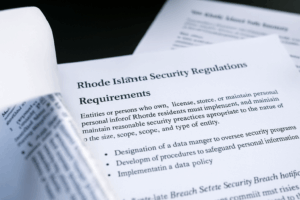In recent years, public transportation systems have become increasingly reliant on digital technologies to manage operations, enhance efficiency, and improve passenger experiences. However, this technological advancement brings a significant downside: the growing threat of cyberattacks. The recent incident involving Transport for London (TfL), where a cyberattack disrupted services and compromised sensitive data, underscores the pressing need for robust cybersecurity measures within public transportation systems. This article explores the evolving cybersecurity threats facing public transport, their implications, and strategies to mitigate these risks. It also highlights how Triton Technologies can assist in enhancing cybersecurity for transportation and logistics sectors.
The Rise of Cybersecurity Threats in Public Transportation
Public transportation systems are integral to urban life, providing essential services to millions of people daily. As these systems have adopted more advanced technologies—ranging from ticketing systems and passenger information displays to real-time tracking and automated operations—they have also become prime targets for cybercriminals. The increasing complexity of these systems creates multiple entry points for attackers, making them vulnerable to various types of cyber threats.
One notable recent example is the cyberattack on Transport for London (TfL). On September 1, 2024, TfL experienced a significant breach that affected internal IT systems and customer services. The attack disrupted TfL’s Dial-a-Ride service, impacting individuals with disabilities who rely on this essential transportation option. Additionally, sensitive data, including customer names, contact details, and bank account information, was stolen. This incident highlights the severe consequences that cyberattacks can have on public transportation operations and the safety of passenger information.
Explore our Managed Service Offerings
Worcester’s Top Managed Service Provider
Understanding the Cybersecurity Landscape
The cybersecurity threats facing public transportation systems are diverse and evolving. Here are some key threats:
Ransomware Attacks
Ransomware is a type of malicious software that encrypts a victim’s data, rendering it inaccessible until a ransom is paid. Public transportation systems, with their extensive data and critical operations, are particularly susceptible to such attacks. The disruption caused by ransomware can lead to significant operational downtime and financial losses.
Data Breaches
Public transport agencies handle vast amounts of personal and financial data, including passenger information and payment details. Data breaches can lead to the exposure of sensitive information, resulting in identity theft, financial fraud, and reputational damage.
Denial-of-Service Attacks (DoS)
DoS attacks overwhelm a system with traffic, causing it to become slow or unresponsive. For public transportation systems, this can mean disruptions to online ticketing services, real-time tracking, and customer support.
Phishing and Social Engineering
Attackers use deceptive tactics to trick employees into revealing confidential information or granting unauthorized access. Successful phishing attacks can compromise internal systems and lead to further security breaches.
Implications for Public Transport Systems
The implications of cyberattacks on public transportation systems are far-reaching and can impact various aspects of operations and services:
Operational Disruption
Cyberattacks can cause significant disruptions to daily operations, affecting everything from ticketing and scheduling to vehicle tracking and maintenance. For instance, the TfL attack led to the suspension of several internal systems, hindering the agency’s ability to provide efficient services.
Passenger Safety
Disruptions caused by cyberattacks can jeopardize passenger safety, particularly in cases where systems managing vehicle operations or emergency responses are compromised. Ensuring the safety and reliability of transportation services is paramount.
Financial Impact
The financial repercussions of a cyberattack can be substantial. Costs associated with responding to the incident, recovering data, and implementing improved security measures can be considerable. Additionally, there may be fines and legal expenses related to data breaches.
Reputational Damage
A cyberattack can severely damage an organization’s reputation. For public transport agencies, which are responsible for providing reliable and safe services, any breach or disruption can erode public trust and lead to a loss of ridership.
Strategies for Improving Cybersecurity in Transportation
To protect against the growing cybersecurity threats, public transportation agencies need to adopt comprehensive strategies that encompass prevention, detection, and response:
Implement Robust Security Measures
Agencies should deploy advanced security technologies such as firewalls, intrusion detection systems, and encryption to safeguard their digital infrastructure. Regular security assessments and vulnerability scans can help identify and address potential weaknesses.
Educate and Train Staff
Employee training is crucial in preventing cyberattacks. Staff should be educated about common threats, such as phishing scams, and trained in best practices for maintaining security. Regular security awareness programs can help mitigate the risk of human error.
Develop an Incident Response Plan
Having a well-defined incident response plan is essential for minimizing the impact of a cyberattack. This plan should include procedures for detecting, containing, and mitigating the attack, as well as communicating with stakeholders and restoring normal operations.
Regularly Update and Patch Systems
Keeping software and systems up to date with the latest security patches is vital for protecting against known vulnerabilities. Public transportation agencies should establish a routine for applying updates and monitoring for any security advisories.
Collaborate with Cybersecurity Expert
Engaging with cybersecurity experts and participating in industry partnerships can provide valuable insights and resources. Collaboration with organizations like the National Cyber Security Centre (NCSC) can enhance an agency’s ability to respond to emerging threats and stay informed about best practices.
Discover our IT Solutions for Your Industry
Worcester’s Top Managed Service Provider
How Triton Technologies Can Help
Triton Technologies offers managed IT services tailored to various industries, including transportation and logistics. Our expertise in cybersecurity can play a crucial role in safeguarding public transportation systems against evolving threats. Here’s how we can assist:
Comprehensive Security Solutions
We provide a range of security services, including firewall management, intrusion detection, and encryption, to protect your digital infrastructure from potential threats. Our solutions are designed to address the unique needs of public transportation systems and ensure robust protection against cyberattacks.
24/7 Monitoring and Support
Our team offers round-the-clock monitoring and support to detect and respond to potential security incidents in real-time. This proactive approach helps minimize downtime and ensures that any security issues are addressed promptly.
Risk Assessment and Vulnerability Management
Triton Technologies conducts thorough risk assessments and vulnerability scans to identify potential weaknesses in your systems. We provide actionable insights and recommendations to strengthen your cybersecurity posture and reduce the risk of attacks.
Employee Training and Awareness
We offer training programs to educate your staff about cybersecurity best practices and the latest threats. Our training ensures that employees are equipped to recognize and respond to potential security risks, reducing the likelihood of human error.
Incident Response Planning
We assist in developing and implementing a comprehensive incident response plan tailored to your organization’s needs. Our team helps you prepare for potential incidents, ensuring that you have the necessary procedures in place to respond effectively and minimize impact.
Ongoing Updates and Maintenance
Triton Technologies ensures that your systems are regularly updated and patched to protect against known vulnerabilities. Our maintenance services help keep your infrastructure secure and up-to-date with the latest security measures.
Future Trends and Challenges
As technology continues to advance, public transportation systems will face new and evolving cybersecurity challenges. The growing adoption of Internet of Things (IoT) devices, for example, introduces additional vulnerabilities that need to be addressed. Additionally, the increasing sophistication of cyberattacks means that public transport agencies must remain vigilant and proactive in their security efforts.
In conclusion, the recent cyberattack on Transport for London serves as a stark reminder of the cybersecurity risks facing public transportation systems. By implementing robust security measures, educating staff, and developing comprehensive incident response plans, agencies can better protect themselves against these threats.
Triton Technologies is here to support the public transportation and logistics sectors in enhancing your cybersecurity resilience. We offer comprehensive Managed Services, IT Compliance, and IT Solutions tailored to various industries. Our expertise can help you safeguard your systems, ensure compliance with industry standards, and implement effective cybersecurity strategies.
Ensuring the safety and reliability of public transportation services is essential for maintaining public trust and the smooth functioning of urban infrastructure. As the digital landscape continues to evolve, staying informed and prepared will be key to safeguarding the future of public transport. For more information on how we can assist your organization, please contact us to discuss how our services can benefit you.
Discover Our Compliance Management Solutions
Worcester’s Leading Provider of Compliance Services



